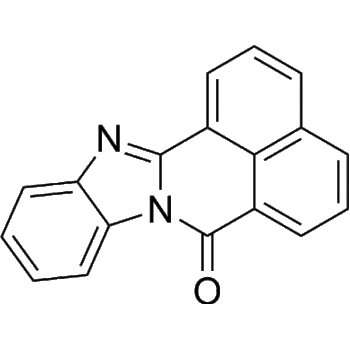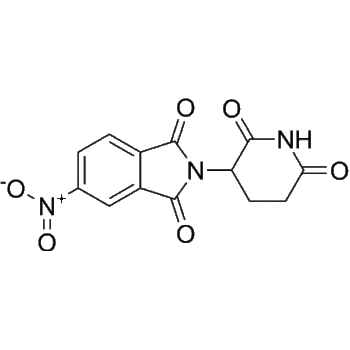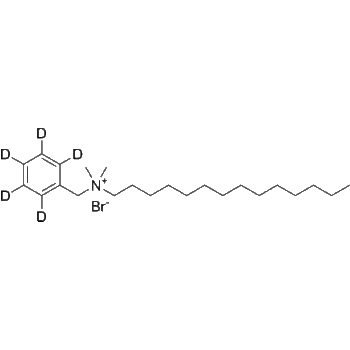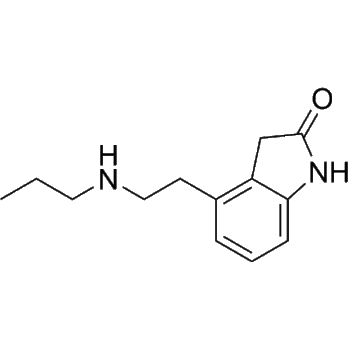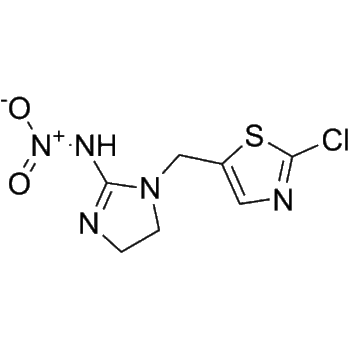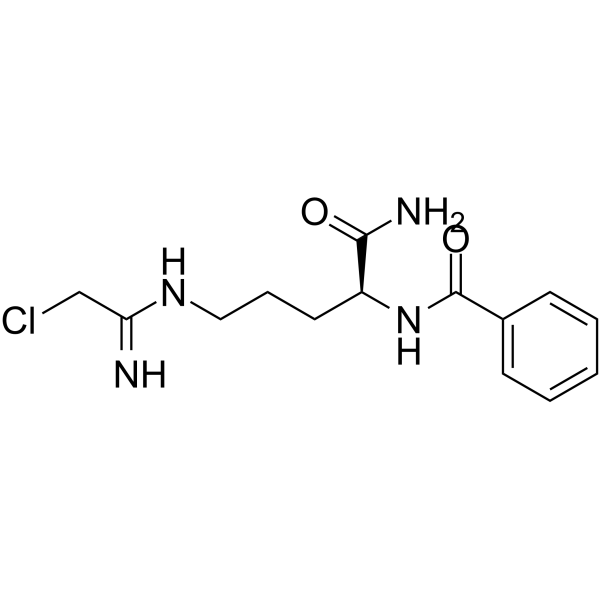
Download Files:
Cl-amidine
SKU
HY-100574-Get quote
Category Reference compound
Tags Apoptosis;Epigenetics, Apoptosis;MicroRNA;Protein Arginine Deiminase, Cancer; Inflammation/Immunology
Products Details
Product Description
– Cl-amidine is an orally active peptidylarginine deminase (PAD) inhibitor, with IC50 values of 0.8 μM, 6.2 μM and 5.9 μM for PAD1, PAD3, and PAD4, respectively. Cl-amidine induces apoptosis in cancer cells. Cl-amidine induces microRNA (miR)-16 (miRNA-16, microRNA-16) expression and causes cell cycle arrest. Cl-Amidine prevents histone 3 citrullination and neutrophil extracellular trap formation, and improves survival in a murine sepsis model[1][2][3][4][5].
Web ID
– HY-100574
Shipping
– Room temperature
Applications
– COVID-19-immunoregulation
Molecular Formula
– C14H19ClN4O2
Citations
– Neoplasia. 2022 Nov;33:100835.|Research Square Print. January 4th, 2023.|Transl Res. 2022 Nov 23;S1931-5244(22)00252-3.|Vet Parasitol. 2022 Nov 19;312:109841.|Cell Rep. 2021 Sep 21;36(12):109750.|Chem Res Toxicol. 2022 Feb 15.|Fish Shellfish Immunol. 2022 Aug 3;S1050-4648(22)00414-4.|Microb Pathogenesis. 2020 Dec;149:104530.|Microvasc Res. 2023 Aug 9;104592.
References
– [1]Witalison EE, et al. Molecular targeting of protein arginine deiminases to suppress colitis and prevent colon cancer. Oncotarget. 2015 Nov 3;6(34):36053-62.|[2]Biron BM, et al., Cl-Amidine Prevents Histone 3 Citrullination and Neutrophil Extracellular Trap Formation, and Improves Survival in a Murine Sepsis Model. J Innate Immun. 2017;9(1):22-32.|[3]Bryan Knuckley, et al. Substrate Specificity and Kinetic Studies of PADs 1, 3, and 4 Identify Potent and Selective Inhibitors of Protein Arginine Deiminase 3. Biochemistry. 2010 Jun 15;49(23):4852-63.|[4]Yuan Luo, et al. Inhibitors and Inactivators of Protein Arginine Deiminase 4: Functional and Structural Characterization. Biochemistry. 2006 Oct 3; 45(39): 11727–11736.|[5]Chumanevich AA, et al. Suppression of colitis in mice by Cl-amidine: a novel peptidylarginine deiminase inhibitor. Am J Physiol Gastrointest Liver Physiol. 2011 Jun;300(6):G929-38.
CAS Number
– 913723-61-2
Molecular Weight
– 310.78
SMILES
– O=C(N[C@H](C(N)=O)CCCNC(CCl)=N)C1=CC=CC=C1
Clinical Information
– No Development Reported
Research Area
– Cancer; Inflammation/Immunology
Solubility
– 10 mM in DMSO
Target
– Apoptosis;MicroRNA;Protein Arginine Deiminase
Pathway
– Apoptosis;Epigenetics
Product type
– Reference compound
Disclaimer: All products are for Research use only unless clearly stated otherwise on the product datasheet. Datasheets provided on the website are drafts for reference purpose only and you are requested to always refer to the hard copy included in the kit for your experimentation. Agdia Products are available for delivery only in Canada.
